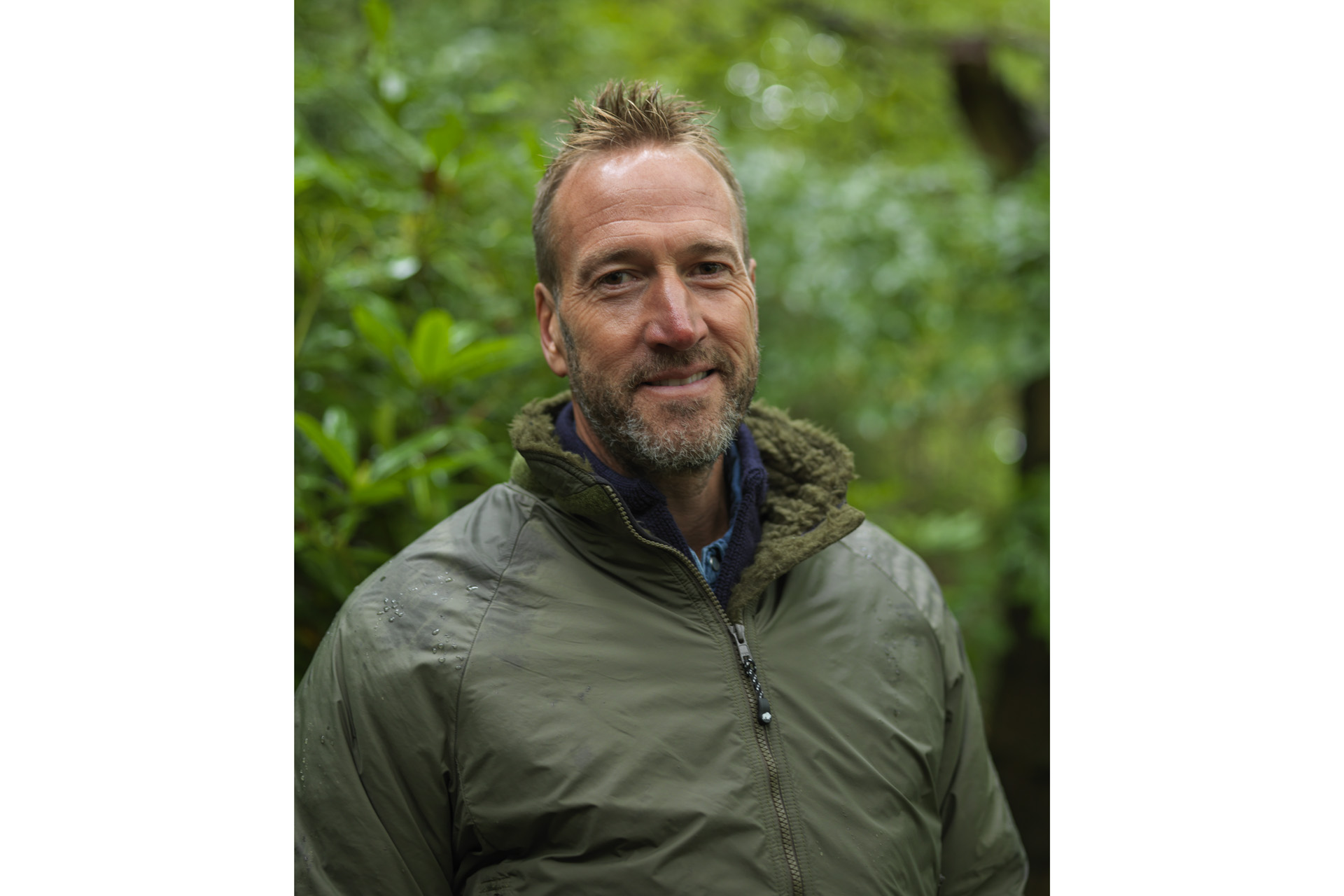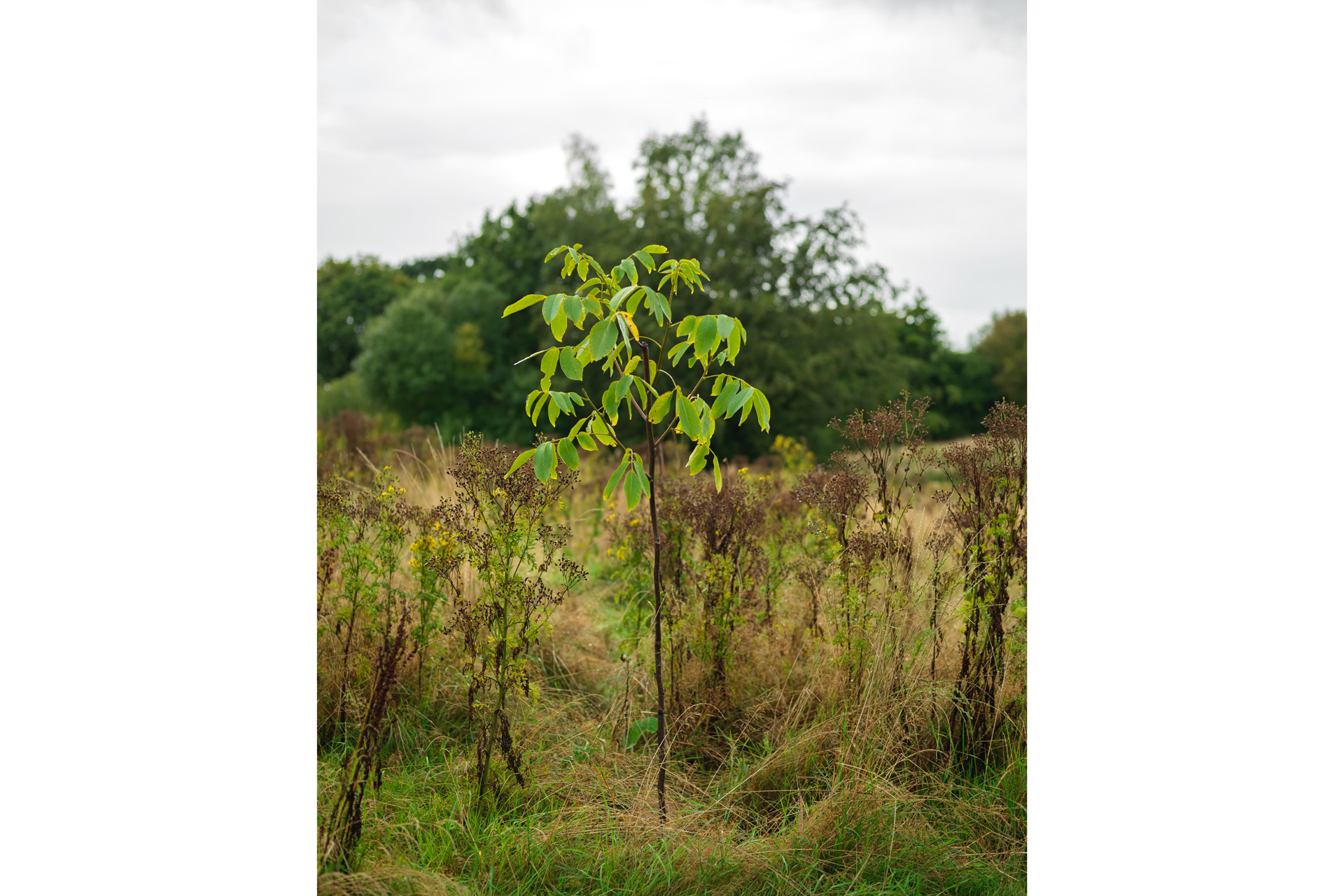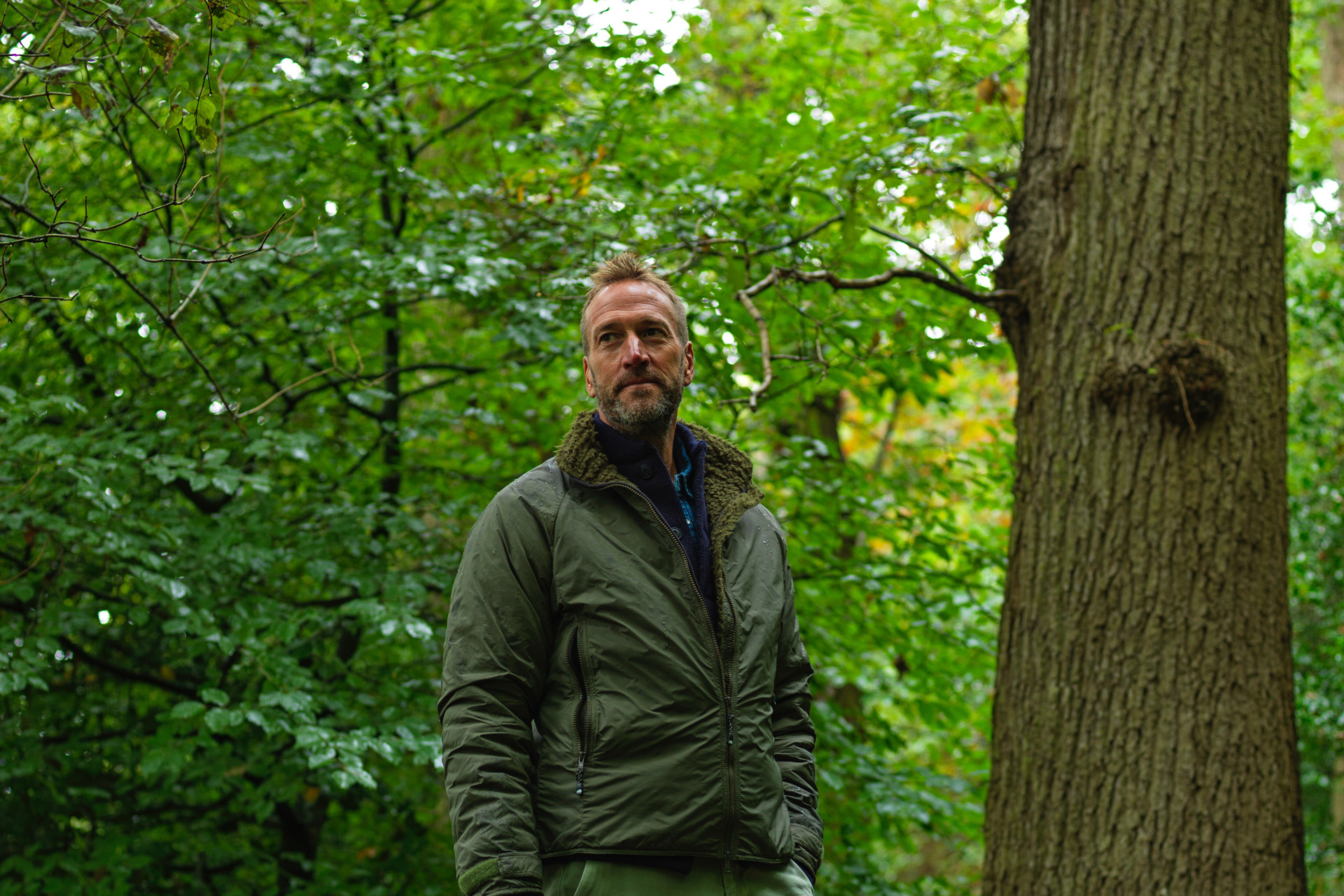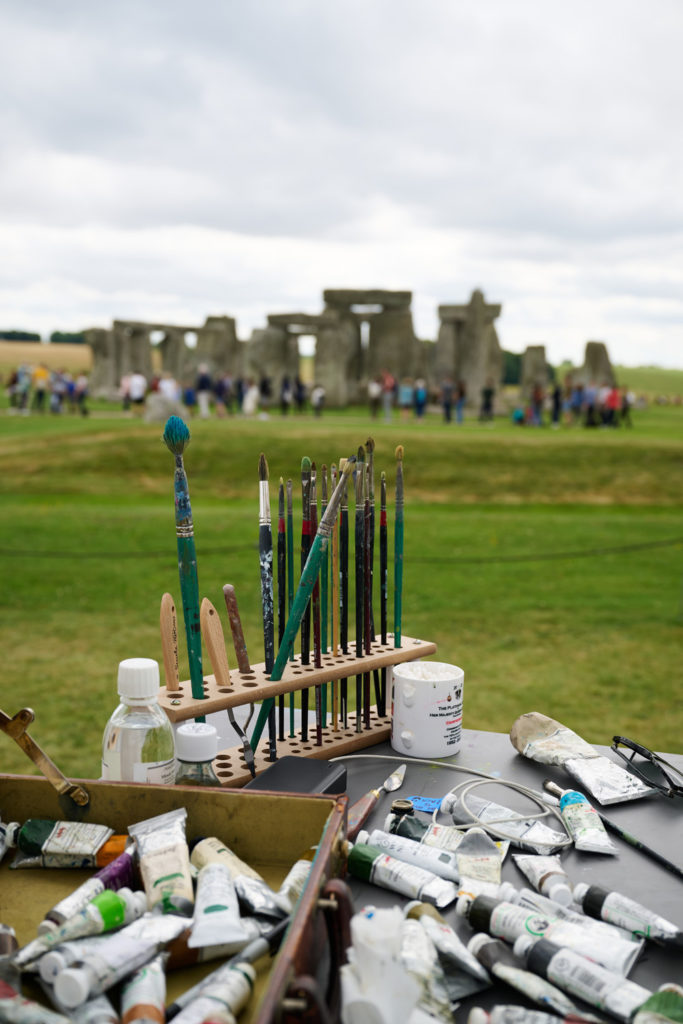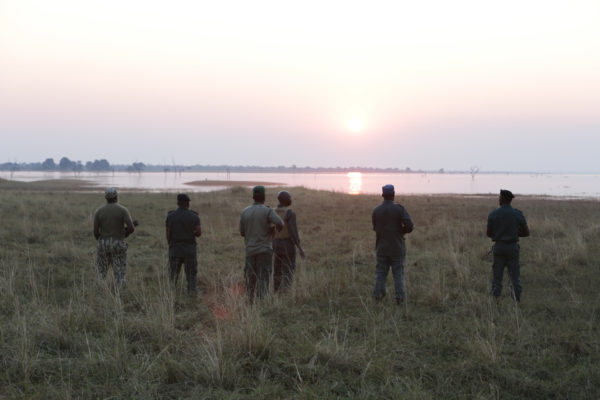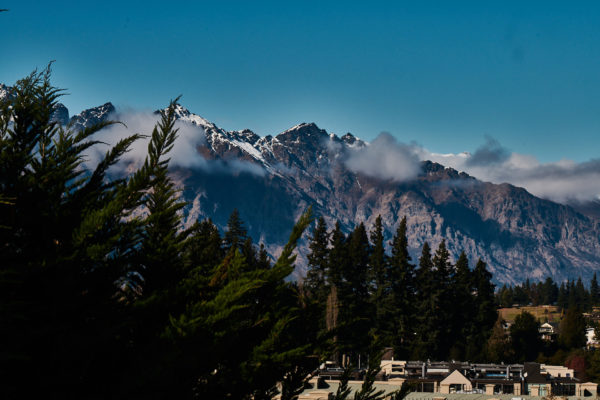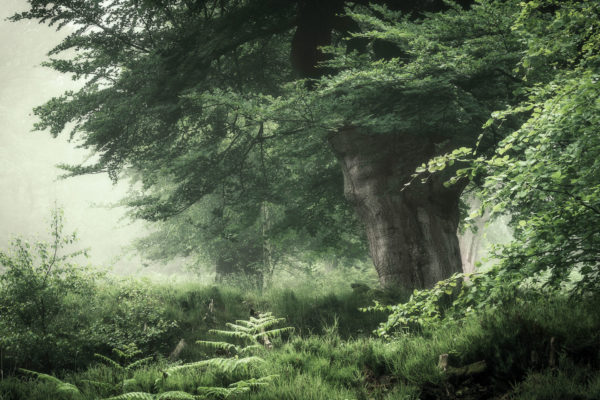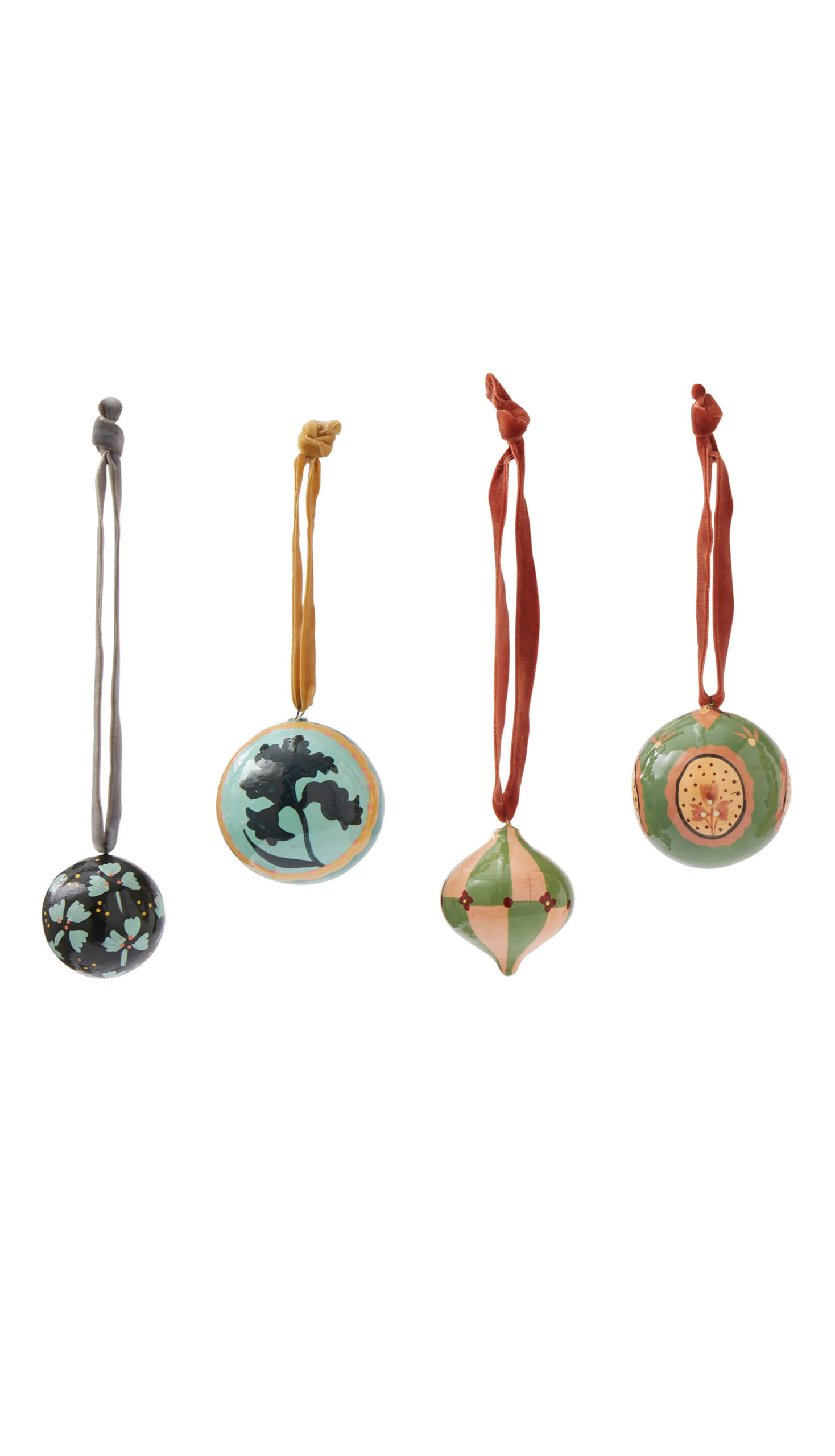‘This is a marathon, not a sprint’: Ben Fogle on Biodiversity – Interview
By
3 years ago
The TV adventurer is planting trees in partnership with HP and The Arbor Day Foundation
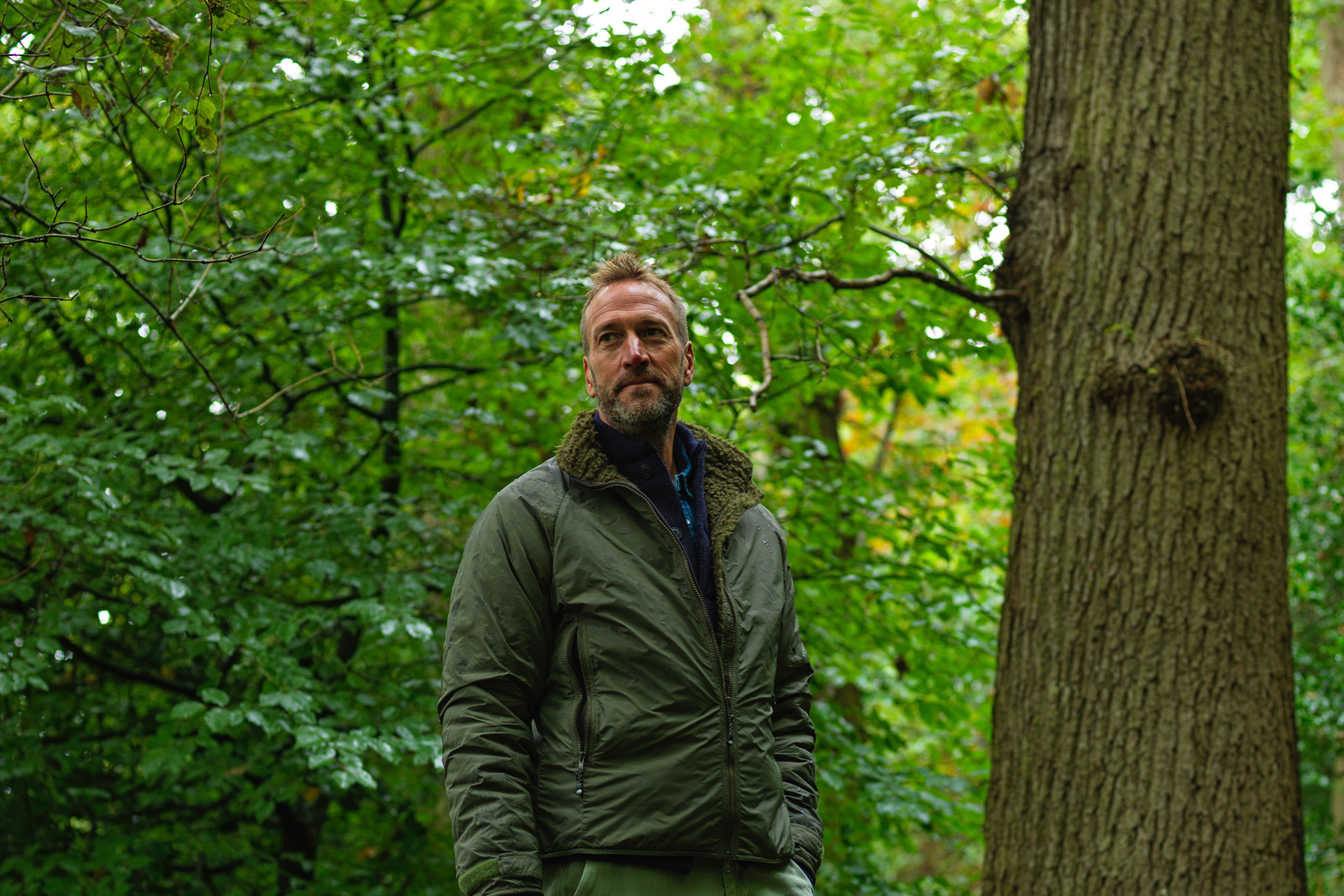
The UK’s biodiversity is in crisis. A recent WWF report reveals that the UK is one of the most nature depleted countries in the world, with approximately half of its biodiversity left. On a global scale, this puts the UK in the bottom 10 percent (average levels of global biodiversity depletion sit at 25 percent). Last year, adventurer and TV personality Ben Fogle planted some trees in Merseyside – in partnership with HP and the Arbor Day Foundation – in an effort to remedy some of this depletion. HP has aspirations to become the world’s most sustainable and just tech companies, committing to bold goals and planting one million trees every year to recover biodiversity globally. We chatted to Ben upon the release of his new short film on Instagram, which shows his return to Mersey Forest one year later.
Biodiversity with Ben Fogle: ‘This is a marathon, not a sprint’
Hi Ben, it is lovely to be chatting with you today. Firstly, can you tell me a little bit more about the reforestation work that you are working on with HP?
Yes – this is the second year I’ve been working with HP to highlight their work with the Arbor Day Foundation, replanting trees. HP has made a commitment to plant one million trees worldwide each year, and one of their UK locations is the Mersey Forest. I was up there last year – helping plant some trees and making a little film about their work – and I returned this year to see how things have progressed, and to document HP’s commitment for another year of worldwide tree planting.
This is all in the context of the slightly worrying statistics about the UK and our environmental position on the world stage. We’ve lost a massive amount of our biodiversity: we’ve got 50 percent of it remaining, putting us in the bottom 10 percent in the world. This is far below the worldwide average of 75 percent, which is a terrifying statistic in itself. But the fact we’re in the bottom 10 percent worldwide, I think, is embarrassing. It’s worrying. So my work with HP and Arbor Day Foundation is to start a debate. The film that I’ve made is to get people commenting on what they think needs to be done and what they think about the state of the planet and our environment here in the UK. And also to just, hopefully, empower people – to enable people to actually make a change themselves, whether it’s through the products that they choose, and the companies that provide those products, and what those companies’ commitments are. Like HP, for example, which has some big, ambitious targets to reduce its carbon footprint.
I knew biodiversity was declining, but I didn’t realise that the UK is performing so poorly on a global stage. How did we get to this point? And how is this poor biodiversity having a wider impact on our environment in the UK?
We have been sleepwalking for quite a few years now. And I think that sleepwalking has been artificially enhanced by things that are out of our control – pandemics and warfare, for example. There are plenty of things to keep distracting us – or to keep us asleep, keep our eyes closed.
Naturally the pandemic set us all back a little, though we were progressing a little bit. The rise in insect life and bird life was pretty prolific during that period. But then you look at a statistic like one in seven native UK species are facing extinction, according to WWF, and more than 40 percent are in decline, and it’s pretty terrifying.
So how can we empower people to make a change?
If you reel off some of those stats, like the one about being in the bottom 10 percent of biodiversity in the world, it is pretty terrifying. But my form of environmental messaging isn’t necessarily to terrify people into change. I think it should be about enabling.
If you look at our place on the world stage right now, we’re not doing particularly well in any area: politics, economics – all of those things. The UK was once a nation to be proud of, a nation that other nations look towards for innovation, ideas, technology and progress. I can’t help but feel that’s where we should be now. I don’t think that environmentalism should be detrimental to economic growth, which is what a lot of people would have you think. I actually think we just have to change the status quo. We were pretty clever at industrialisation, so the greenisation, the whole green movement, should be just like that. It should be something where we’re using the greatest brains in the whole world.
Look at what happened when you put all the brains of vaccine research together: we were able to create a malaria vaccine. They’ve been working on that one for years, and suddenly it was almost a byproduct. I feel quite positive about the seven billion people on this planet, and the brilliant brains that can be put together to improve biodiversity within our urban and rural spaces.
Is there anything in particular that makes you feel like a sustainable future is within reach?
Well, I get to see it on a daily basis through my work. My new series of New Lives in the Wild sees people living an off-grid, sustainable life. I’ve seen how people have been able to do that in every single environment possible, from deserts, to mountains, to forests, to jungles. So I know it is possible.
Now, obviously, to scale that up is a much harder proposition. And to do that in big cities – where people live in apartment blocks where they’re tied to the central heating systems that are in place – is a much harder one to deconstruct.
So how do we start deconstructing it? How should our perspective shift?
It would be lovely to think that we had a wider vision of policy that incorporated many more green initiatives. There’s already grants that you can get to put in heat exchange systems and wind turbines and things, but it doesn’t feel like it’s all consolidated. It doesn’t feel like one hand is talking to the other. There needs to be more collaboration between different industries and people, and I don’t think this does just rely on people waiting for politicians to make the decision for us. ‘Let’s wait and see what our new prime minister decides’ – we can’t afford to do that. We need general citizen action.
My big thing is that I came out of the ‘green closet’ a few years ago. I was too scared to ‘come out’ before, because as soon as you put your head above the green parapet, you stand accused of any failings or shortcomings. I do a lot of air travel for my work, and it’s something that I struggle to justify, but it is the only means of me getting to faraway places where I film. I could abstain – there are other presenters who have refused to do air travel, and it works for them. It wouldn’t work for me, for the genre of television that I’ve done.
But one of the reasons it took me so long to talk about sustainability is because there’s this assumption that if you are ‘green’, you have to be 100 percent perfect. It’s the same with companies like HP – I think it’s very brave of them to stand on a soapbox and say ‘this is what we’re doing’. Because, yes, it’s very easy to criticize companies like HP in the things maybe that they’re not doing. But are we using the carrot or the stick? Are we encouraging people to and applauding people who make those changes, or are we going to use a stick and say, ‘No, you’re not doing enough, you need to do more, you’re still failing in this area and this area…’?
That doesn’t mean that we shouldn’t keep improving, but wouldn’t it be better if 100 percent of us made a 10 percent change, rather than those 10 percent of us who have put our heads above the green parapet making a 100 percent change?
The main thing here as well, is that we live in a society where people want instant gratification: they want changes instantly, they want to save the planet overnight. If you can’t save it overnight, there’s no point doing it – that’s the mantra that a lot of people have. But this is a marathon, not a sprint. And planting trees, I’ve seen the progress made from last year, and it’s almost imperceptible. Let’s be honest, you’re not going to suddenly see a big canopied forest that you can walk under. But that’s the whole point – that this is the long term. Planting those one million trees, in 100 years – when my great great grandchildren are walking through that forest – it’s going to be magnificent. They’re going to say to themselves, ‘wasn’t that amazing and heroic, that society back then thought about us future generations, and were doing this’. People just have to do a mindset shift: it’s not going to be instant, it’s not going to be perfect, but we have to do something.
What are some things that normal people can do to help Britain’s environment on a day-to-day basis?
If you have access to green space, think about planting out. You need to be very sensible about what you plant – within planting, there needs to be biodiversity. So if you’re knowledgeable and you’ve done some research, you can plant your own trees and hedgerows. We’re putting in a huge amount of hedging where we live to try and improve the flora and fauna, and to encourage the native species back. There are also plenty of organizations like the Arbor Day Foundation who are doing planting, and you can go online to see how you can join in and make donations.
Also, everything you do, every time you do it, and you think ‘what difference is this going to make, it’s just me?’, multiply it by seven billion. We need to think about the cause and effect of everything we do. The products you buy, where you bank, all of those things will have an impact. Do you need that, or do you want that product?
Working on campaigns with HP, here’s a technology company that obviously has an impact – but how negative that impact is comes down to other actions that they take, and how considered they are with every other action that they take. I love this idea of just being a bit more considered about everything rather than just rushing in with haste.
We love being considered at C&TH, too. So, you’ve travelled all over the world and climate change is a big problem everywhere. But what motivated you to turn your attention to the UK’s trees?
I’ve always been passionate about the UK, and I think the more time I’ve spent exploring the countryside, the more I’ve appreciated that this is a beautiful island. Wanting to protect it has always been there, but I haven’t necessarily felt enabled enough.
We lived in London until just before the pandemic, and I think now living in a rural area, you become much more aware of the rise and fall of bird song. You’re much more acutely aware of the minute changes in the habitat around you. Where we live, what used to be a pretty biodiverse bird life is now just green parakeets and red kites. Now, some people would say ‘red kites, brilliant – amazing progress reintroducing a species’. But there are literally 30 of them wheeling over our garden, and between them and the parakeets, I’m not sure that is a good thing. Green parakeets are not native species, and as much as some people may marvel at them, which I did in the first instance, it’s a worrying thing – how they’re going to impact biodiversity.
It’s been a slow progress over the years, but I think having two children also reminded me to really think about this environment of ours. We go on walks, we see, we experience, we touch, we plant, we dig up, we do all sorts of things. I’m much more acutely aware of this habitat that we are leaving them and their grandchildren. I don’t want to have been one of those people that sat back and just thought, ‘it will sort itself out’. Because it won’t.
And one final fun question: What’s your favourite tree?
I love a silver birch, if I’m to be honest. They’re very beautiful to look at. But, having said that, there is a magnificent English oak in the field opposite us, which is on a whole different scale. So I think it depends… If I’m near to the tree, I love the silvery bark of a silver birch. If I’m far away, an English oak is just magnificent.
*
Ben Fogle is an English broadcaster and adventurer, partnered with HP and the Arbor Day Foundation to plant trees and draw attention to the UK’s biodiversity crisis. His short film about replanting the Mersey Forest is available to watch on Instagram, where Ben is also encouraging his followers to comment what they love about the natural environment near them. Each comment will pledge a further three trees to be planted to help restore UK biodiversity (T&Cs apply).
If you plan on planting trees, note that it is important to partner with experts in reforestation efforts, as you can’t simply plant any type of tree you want, anywhere you want. Local teams on the ground make sure that any new trees are in keeping with the area’s existing natural woodland and maintain the biodiversity of the location.

